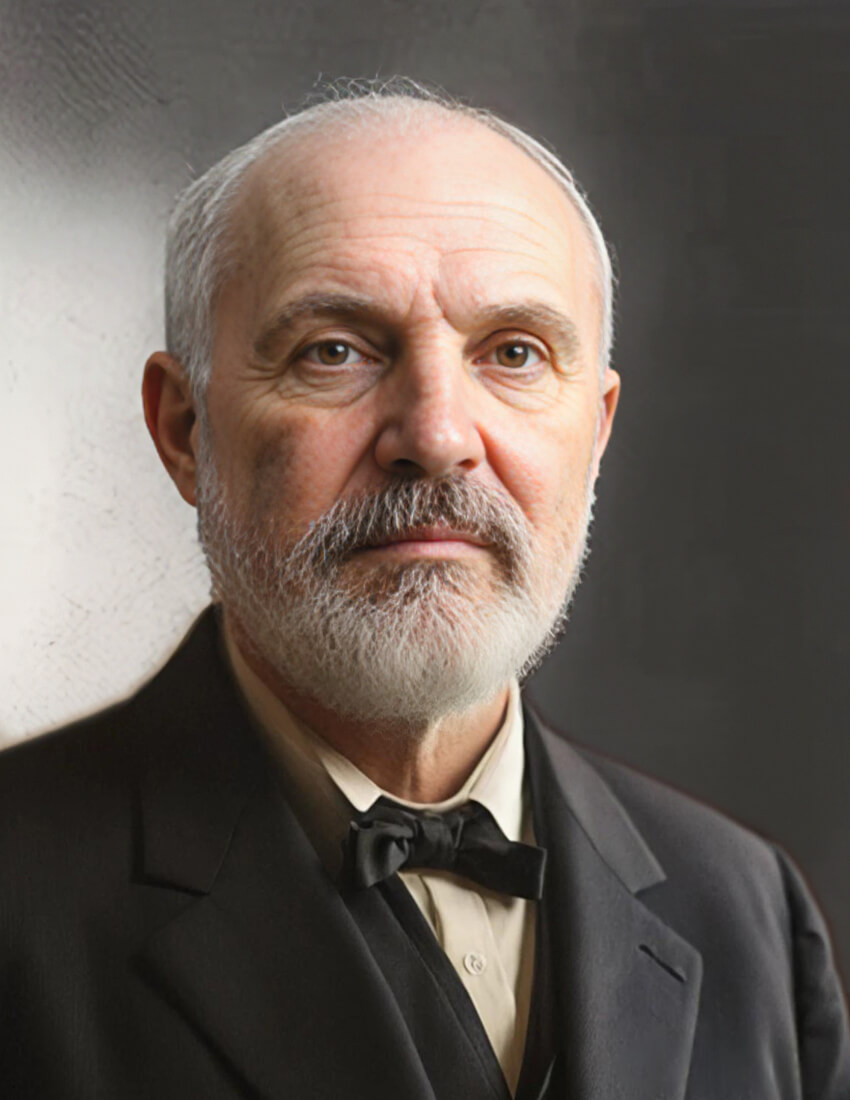Born: July 12, 1843, Napoleon, OH.
Died: June 14, 1901, Cleveland, OH.
Buried: Alliance City Cemetery, Alliance, OH.
Ralph Erskine Hudson

Hymns by Ralph Hudson
The sound of marching feet echoed through the streets of Philadelphia as young Ralph Erskine Hudson watched Union soldiers parade by. Little did the wide-eyed boy know that he would soon join their ranks, and that his journey through war would lead him to create melodies that would ring out in churches for generations to come.
From Battlefield to Hymnal: Hudson’s Journey
Born on July 9, 1843, in Napoleon, Ohio, Ralph E. Hudson’s life took an unexpected turn when his family moved to Philadelphia. As the Civil War erupted, the young man answered the call to serve, enlisting in Company K of the 10th Pennsylvania Reserve Regiment on June 20, 1861.
Hudson’s wartime experience proved transformative. Between June 1862 and February 1863, he served as a nurse at the General Hospital in Annapolis, Maryland. It was here, amidst the suffering and hope of wounded soldiers, that Hudson met Mary Smith. Their romance blossomed quickly, and they married on March 4, 1863, just months before Hudson’s honorable discharge in June 1864.
Harmonizing Faith and Music: Hudson’s Dual Calling
With the war behind him, Hudson’s musical talents found new purpose. He secured a position teaching music at a college in Alliance, Ohio, where he remained for five years. This stable foundation allowed him to launch a music publishing business, marrying his entrepreneurial spirit with his passion for melody.
Yet Hudson’s ambitions extended beyond the realm of secular music. As a lay preacher in the Methodist Episcopal Church, he found himself drawn to the power of sacred song. His dual roles as musician and preacher merged seamlessly, fueling a lifelong dedication to evangelism through both word and music.
Penning Praise: Hudson’s Hymn Writing Legacy
Hudson’s first hymn book, “Salvation Echoes,” hit the presses in 1882, marking the beginning of a prolific publishing career. Over the next five years, he produced four more songbooks, each with its own thematic focus:
- “Gems of Gospel Songs” (1884)
- “Songs of Peace, Love and Joy” (1885)
- “The Temperance Songster” (1886)
- “Songs of the Ransomed” (1887)
A staunch prohibitionist, Hudson used his musical talents to advocate for total abstinence from alcohol. “The Temperance Songster” stands as a melodic manifesto of his convictions on this issue.
Echoes Through Time: Hudson’s Most Enduring Works
While Hudson’s complete works are vast, several of his hymns have stood the test of time, continuing to appear in modern hymnals. His original composition “My Life, My Love, I Give to Thee,” first published in “Salvation Echoes,” has been included in hundreds of hymnals over the past century and remains a staple in the Baptist Hymnal.
Hudson’s creative touch extended to reimagining existing hymns. He added memorable refrains to classics like “Alas! and Did My Saviour Bleed” and “O for a Thousand Tongues to Sing.” His adaptation of the latter, with its repeated line “Blessed be the name of the Lord,” gained particular popularity in Southern Baptist churches.
A Collaborative Spirit: Hudson’s Musical Partnerships
Hudson’s impact on hymn writing went beyond his own pen. His collaboration with Clara Tear Williams led to the creation of “Satisfied,” a hymn that showcases the power of artistic partnership. Williams recounted how Hudson, upon hearing her lyrics, composed the music overnight, breathing life into her words through melody.
Final Verses: Hudson’s Lasting Impact
In 1897, Hudson moved to Cleveland, Ohio, where he continued to publish music and travel as an evangelist. His dedication to his craft never wavered, even in his final days. In late May 1901, he embarked on an extensive trip to promote his latest songbook, stopping to deliver a lecture at Taylor University, where he served as a trustee.
Tragically, shortly after this final public appearance, Hudson fell ill and passed away on June 14, 1901. He was laid to rest in Alliance City Cemetery, joined later by his beloved wife Mary in 1925.
Ralph E. Hudson’s life journey—from Civil War nurse to renowned hymn writer—left an indelible imprint on American Christian music. His melodies continue to reverberate through church sanctuaries, a living legacy of a man who dedicated his life to harmonizing faith, music, and social conscience. As congregations today lift their voices to sing Hudson’s words, they keep alive the spirit of a man who truly gave his life and love to his craft and his Creator.

